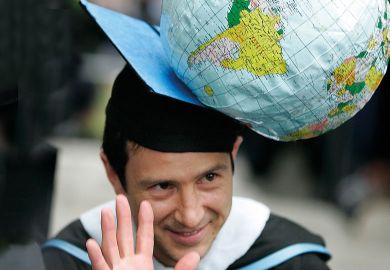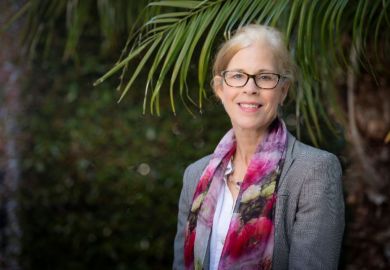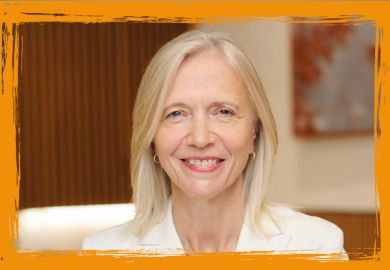Many years ago, in a rural region of one of Africa’s most impoverished countries, a 13-year-old girl, sprawled on the dried mud floor of her closet-sized room, told me about her life as the main caregiver to her four younger brothers and sisters. Her father had left long ago for the big city, and her mother had followed shortly afterwards, promising to return after making some money.
The struggles Nihima (not her real name) was confronting are similar to those still experienced by the millions around the world who live on less than $1.90 (£1.53) a day – classified by the World Bank as extreme poverty. Moreover, about 770 million people are estimated by Unesco to be, like Nihima, unable to read a book or sign their names. More than half of them are women and girls. If Nihima’s socio-economic situation did not improve, it was clear that her siblings would probably experience the same fate, and the cycle would continue.
I don’t know what became of Nihima and her family, but I am more hopeful than I was then that girls like Nihima stand a chance. The launch of the 17 Sustainable Development Goals (SDGs) in 2015 was a landmark moment, and I have witnessed many governments leading the call to end poverty and inequality, protect the planet, and ensure health and prosperity for all.
Translating these calls from theory to practice takes skilled leadership, however – and this is not always available – or affordable. Mid-career global development professionals who have returned to higher education to upskill themselves are obvious candidates to fill that gap.
Students in graduate degree programmes, such as sustainable development practice, public health or public administration are learning to apply interdisciplinary and targeted strategies to address the complex challenges of sustainable development. By the time they complete their degrees, they have a deep understanding that the obstacles to eradicating poverty, disease or illiteracy cannot be removed through more of the same one-dimensional strategies that were applied in the past. Instead, solutions require connecting insights from a range of disciplines and sectors.
But why wait until these mid-career students have completed their degrees to tap into their expertise? As part of their programmes, many are required to complete experiential learning projects or field practicums, which are often based on real-world problems. Employing them while they are still in graduate school is cost-effective and sensible for countries, regions and localities that do not want to lose their future leaders to brain drain.
The Win-Win Project established by the United Nations International Fund for Agricultural Development (IFAD) is a case in point. Between 2016 and 2019, 122 mid-career graduate students from countries such as Bhutan, Botswana, Brazil, India, Nigeria, Senegal and South Africa partnered with IFAD and more than 30 institutes of higher education around the world to address the complex challenges of sustainable development in rural areas. Over a period of three months, the students worked individually or in teams to tackle the major themes of agronomy and veterinary science, environment and natural management, finance, and development studies. Their field experiences culminated in the production of oral recommendations, policy briefs and research papers for the communities in which they were placed – allowing them to give something back.
In fact, the collaboration between IFAD and the institutes of higher education was so rewarding that it led to the establishment of Development Practitioners Without Borders (DPWB), a project by the UN Sustainable Development Solutions Network’s consortium of academic institutions offering master’s courses in development practice. DPWB provides consulting opportunities to mid-career students pursuing a graduate degree, focused on interdisciplinary and multi-sector approaches to sustainable development.
Governments and other stakeholders could adopt the same strategy by partnering with institutes of higher education and tapping into the expertise not only of the mid-career students themselves, but also of faculty. Working with mid-career professionals in school is also cost-effective since governments are hiring locals with contextual knowledge and the expertise to effectively localise the SDGs.
Based on my experience, these students (and their supervisors) genuinely want to be part of the solution to the problems facing their countries – and their input is appreciated by the communities that benefit from it. One scheme, for example, saw the successful realisation of a mid-career student’s idea to connect small oregano and sage farmers (women and farmers’ associations in particular) with the tourism sector, allowing the farmers to sell their wares directly to tourists.
Governments and institutes of higher education around the world should take note. There are still too many Nihimas in the world for excuses about the difficulty of realising the SDGs to be acceptable. Institutes of higher education and their mid-career students are ready and able to contribute.
Lucia Rodriguez is director of the Master’s in Development Practice project at the UN Sustainable Development Solutions Network.
POSTSCRIPT:
The United Nations’ SDG Summit 2023 takes place on 18 and 19 September in New York.
Register to continue
Why register?
- Registration is free and only takes a moment
- Once registered, you can read 3 articles a month
- Sign up for our newsletter
Subscribe
Or subscribe for unlimited access to:
- Unlimited access to news, views, insights & reviews
- Digital editions
- Digital access to THE’s university and college rankings analysis
Already registered or a current subscriber?








